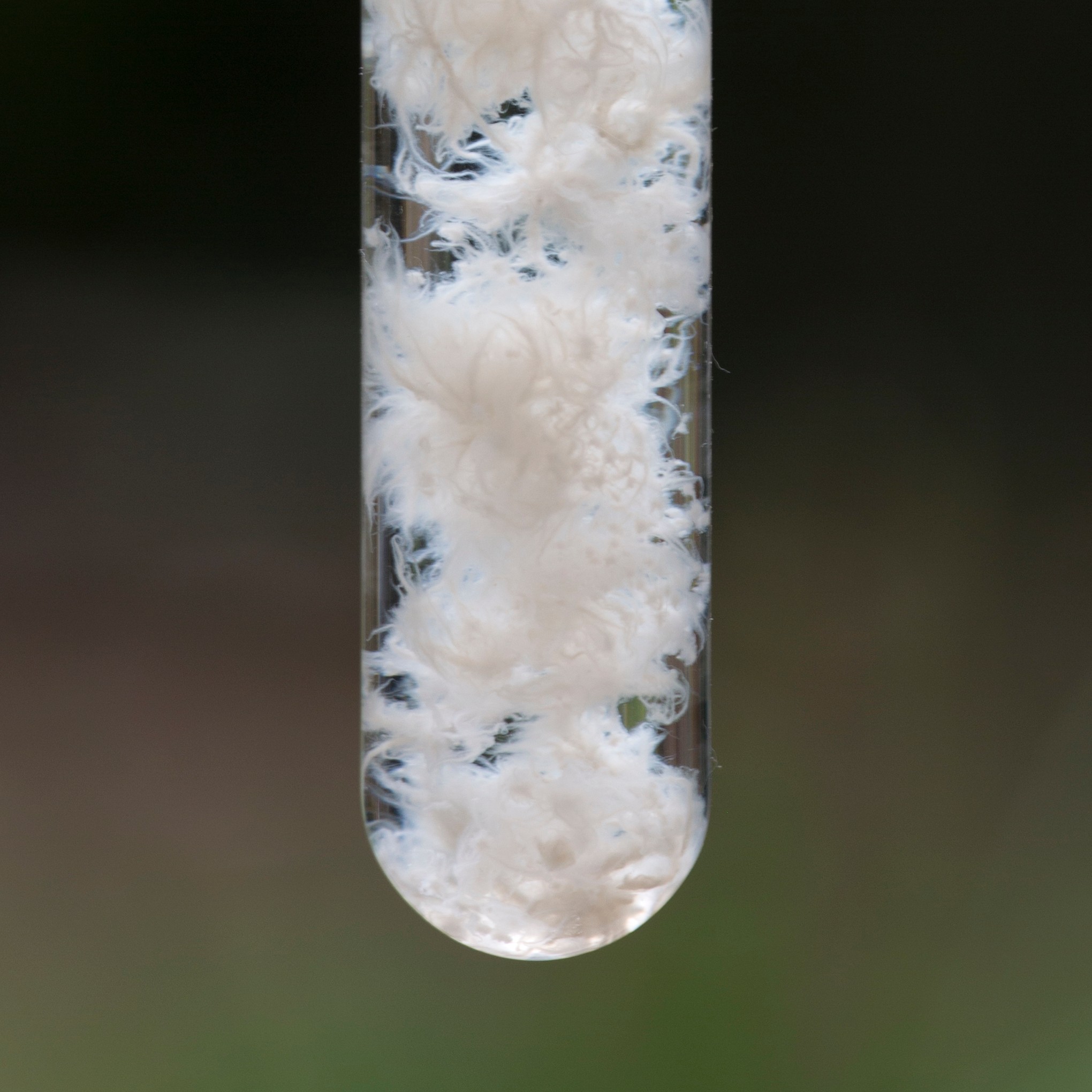Project Results
Please check out our pre-print describing our "low-cost, DIY modular LSF bioreactor system intended to cultivate filamentous fungi and other microorganisms following a minimalist bubble column approach... This bubble column bioreactor concept is unique in its scalability and customization possibilities, significantly reducing research and prototyping costs."
About This Project
Our project aims to develop a food-grade, low-cost, bubble column bioreactor system for easy and sustainable cultivation of filamentous fungi, yeast, bacteria, and algae. The bioreactor system will be designed to cost less than $300, becoming accessible to anyone interested in sustainable agriculture, food security, and biotech. By sharing our project outcomes and resources, we aim to inspire others to build their own bioreactors and explore the potential of microbial cultivation.
Ask the Scientists
Join The DiscussionWhat is the context of this research?
Microbial cultivation is a promising field for sustainable food production, biofuels, and bioremediation. However, the traditional liquid-state fermentation (LSF) bioreactor systems usually employed at this regard are often expensive, complex, and require specialized knowledge to operate. Our project aims to address this challenge by developing a low-cost bubble column bioreactor system that is simple, effective, and accessible to a wider audience. By demonstrating the feasibility of our bioreactor system and comparing its efficiency vs. more expensive commercial options, we hope to promote cheaper, sustainable and decentralized approaches to microbial cultivation.
What is the significance of this project?
Our project has several potential impacts. First, a LSF bioreactor that costs less than $300 can contribute to the democratize and decentralize approaches to microbial cultivation, which can enhance food security, reduce waste, and promote local scientific and economic development, and for just a small fraction of the price of currently available commercial units. Second, a properly optimized design could facilitate the exploration of novel applications of microbial biomass, e.g. biofuels, bioplastics, and functional foods. Third, our open-source approach can inspire individuals and communities to engage with biotechnology and develop their own innovative solutions to societal and technological challenges.
What are the goals of the project?
Our project has four main goals. First, we aim to design and build a low-cost bioreactor system for sustainable microbial cultivation accessible to everyone, keeping its material costs under $300.
Second, we plan to evaluate the bioreactor system's efficacy and performance by growing microbial strains (e.g. fungi, yeast, bacteria and algae) and measuring its productivity, allowing us to compare its efficiency vs. commercial units.
We also want to develop open-source resources and guidelines for building and operating the bioreactor system.
Finally, we would like to share our project outcomes and resources with the wider public and promote the use of sustainable and decentralized approaches to microbial cultivation.
Budget
The budget for our project is mainly allocated to purchasing the necessary equipment, such as the bioreactor components, growth media, and other materials such as sensor-related technology. We have also allocated funds for custom 3D printing and CNC machining services as well as for conducting in vivo experiments and for data analysis. Additionally, we have included costs for sharing the results of our project with the wider community, such as website development, video-editing, and publication services in scientific journals. Overall, we believe that our budget is reasonable and necessary to achieve the goals of our project.
Endorsed by
 Project Timeline
Project Timeline
We have set a realistic timeline for the development and testing of our low-cost bioreactor system that includes optimization experiments and comparative studies versus commercial units. Throughout the project, we will provide regular updates to our backers and supporters through our project page, social media channels, and email newsletters. We aim to complete the project on time and deliver a high-quality, low-cost bioreactor system that can support sustainable microbial cultivation.
Jun 16, 2023
Project Launched
Nov 21, 2024
Provide first bioreactor design and order materials
Jan 30, 2025
Construction of first units and in vivo testing
Feb 28, 2025
Optimization of bioreactor's design and productivity
Apr 30, 2025
Comparative testing with commercial systems
Meet the Team
Affiliates
Antoni Gandia
M.Sc. Cellular and Molecular Biology of Plants by the Polytechnic University of Valencia (2011), Antoni is a consultant and prolific research scientist specialized in fermentation and fungal biotechnology. He worked as R&D scientist and CTO for several mycelium-based companies in the mycoprotein, mycoleather, and psychedelic sectors, including Ecovative Design (US), Mondo Mycologicals (NL), Tyroler Glückspilze (AT), Mogu (IT), and more recently Mimosa Therapeutics (NL). In parallel to his myco-industrial endeavors, Antoni actively collaborates with academic scientists exploring different fields of mycology, trying to bring to the public attention the multiple and fascinating applications of fungi.
Additional Information
While the bioreactor system described in this proposal will be specifically designed and optimized for the cultivation of microbial biomass, it is worth noting that similar liquid-state fermentation (LSF) bioreactors have been successfully used in various industries, including the production of fermented beverages such as beer, wine, and sake.
Our bioreactor design will utilize a glass cylinder containing liquid, and compressed air will be axenically injected through the bottom of this cylinder to create an air bubble column. The nutrient broth and the microbial biomass are mixed and oxygenated by having this air bubble column raising up through the liquid cylinder in a process known as sparging or gas flushing.
The ability to precisely control temperature, pH, and nutrient levels in a closed, sterile environment is highly desirable for many applications involving microbial cultures, and the bioreactor system proposed here could potentially be adapted and modified for use in these industries as well. However, it is important to note that the specific requirements for each application may vary, and further research and optimization would be necessary to ensure successful implementation in these contexts.
Project Backers
- 21Backers
- 101%Funded
- $10,125Total Donations
- $482.14Average Donation





